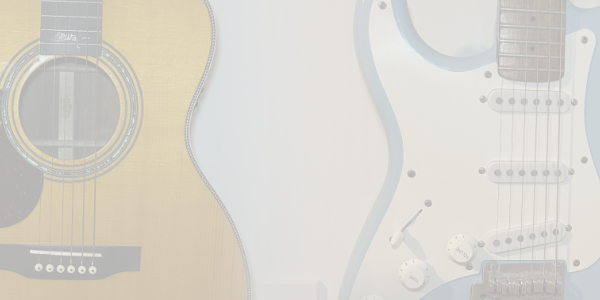
Budgeting as a Musician – How to Save and use your money better!

Introduction
Being a full-time musician can be a dream come true, but it can also come with its own set of financial challenges. One of which is Budgeting as a Musician! Musicians often have inconsistent income streams, unpredictable expenses, and the constant need to reinvest in their careers. To manage their finances and ensure stability, it is essential for musicians to create and stick to a budget.
So in this article we will be going over the process of Budgeting as a Musician so that people can do to help budget as a musician! Save money but also making the most of your money and making sure you can live off it.
Identify Your Income Sources
The first step in creating of Budgeting as a Musician is to identify all of your income sources. This may include gigging, merchandise sales, streaming royalties, and other sources such as side jobs or freelance work. It is important to be as thorough as possible, as even small streams of income can add up over time.
Work out what you can have made made money in your music and write it down. Create a spreadsheet and track and workout your income. Knowing where your money comes from allows you to have a better understanding on how much you can and should make.
Track Your Spending
Next, track your spending for a month to get a clear picture of where your money is going. This can be done using a pen and paper, a spreadsheet, or a budgeting app. Be sure to include all expenses, big and small, such as rent, groceries, transportation, and equipment purchases.
Plus any minor or sudden expenses like repairs or purchases! You can use these to calculate a monthly average. The more data you collect the more helpful it is.
Categorise Your Spending
Once you have a list of all of your expenses, categorise them into different areas such as housing, food, transportation, and entertainment. This will help you see where you are spending the most money and where you may be able to cut back.
You can decide on how detailed you want to split up your spending! You can even put them into sub categories. So you could have “Maintenance” and then “Repairs”, “Strings”, “Other”. This was you will be able to see how you spend your money in each group.
Set Realistic Budget Limits
After you have an understanding of your spending patterns, set realistic budget limits for each category. Consider factors such as your income, expenses, and the lifestyle you want to maintain. It is important to be honest with yourself and not to set limits that are too restrictive, as this will make it difficult to stick to your budget.
It is better to set a higher limit and not hit it, than to set a unrealistic limit and always go over. You can always bring a budget down if you aren’t hitting it, that feels much better than having to raise them.
Create a Savings Plan
As a full-time musician and also Budgeting as a Musician, it is important to have a savings plan in place. This can include setting aside a portion of your income each month for emergencies, investing in a retirement account, or saving for a specific goal such as a new piece of equipment or a tour. Decide what works best for you and make sure it is incorporated into your budget.
Reassess and Adjust
Budgeting is not a one-time event; it is an ongoing process. Regularly reassess your budget to make sure you are on track and make adjustments as needed. This may include increasing your savings, reducing spending in certain categories, or finding new sources of income.
Having the data in front of you allows you to see what you are spending on what. You can then visual see where you can cut back, make adjustments or stop completely. A lot easier to make a decision when you can see the results.
Extra Tips for Budgeting as a Musician
Plan for Unexpected Expenses
As a full-time musician, it is important to plan for unexpected expenses such as equipment repairs, travel costs, and healthcare expenses. Consider setting aside a portion of your income each month for unexpected expenses, or having a contingency plan in place to help cover these costs.
Prioritize Your Spending
When creating your budget, it is important to prioritize your spending. Consider what expenses are necessary for your career and what expenses can be reduced or eliminated. For example, cutting back on eating out or buying less expensive equipment may allow you to save more for your future.
Manage Your Debt
Musicians often have to take on debt to invest in their careers, whether it be for equipment, travel expenses, or recording costs. It is important to have a plan for managing this debt and to pay it off as soon as possible. This can be done by creating a debt repayment plan, negotiating lower interest rates, or finding ways to increase your income.
Seek Professional Advice
If you are having trouble managing your finances as a full-time musician, consider seeking
Conclusion
Hope you found some joy in this article and it made you chuckle or smile, maybe even you found some use in this article. If so, then let us know over on our Instagram and let us know what you thought! If you are after ways to save money as a guitarist/musician you can check out this article here. Full of great ways to cut the cost of music down!
We have also recently put out an article on tips on where to spend your money as a beginner guitarist! Where to focus your spending and what areas are worth spending a bit more and where not to skimp. You can check out that full article here.
We will be posting loads of reviews shortly, covering all kinds of gear from amps, to guitars and loads of pedals so please go check out the YouTube channel and subscribe to keep up to date.
Check out our other Articles here


One thought on “Budgeting as a Musician – How to Save and use your money better!”
Comments are closed.